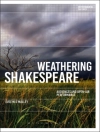Liquid Metal brings together 'seminal’ essays that have opened up the study of science fiction to serious critical interrogation. Eight distinct sections cover such topics as the cyborg in science fiction; the science fiction city; time travel and the primal scene; science fiction fandom; and the 1950s invasion narratives. Important writings by Susan Sontag, Vivian Sobchack, Steve Neale, J.P. Telotte, Peter Biskind and Constance Penley are included.
Spis treści
Acknowledgements
Preface, by Sean Redmond
Section 1. The Wonder of Science Fiction
1. Images of Wonder: the look of science fiction: Iconography, by Vivian Sobchack
2. 'You’ve Got To Be Fucking Kidding!’ Knowledge, Belief, and Judgement in Science Fiction, by Steve Neale
3. Sensuous Elaboration: Reason and the Visible in the Science Fiction Film, by Barry Keith Grant
4. Between Science Fact and Science Fiction: Spielberg’s Digital Dinosaurs, Possible Worlds and the New Aesthetic Realism, by Warren Buckland
Section 2. Science Fiction’s Disaster Imagination
5. The Imagination of Disaster, by Susan Sontag
6. Technophobia/Dystopia, by Michael Ryan and Douglas Kellner
7. Human Artifice and the Science Fiction Film, by J.P. Telotte
8. Dream Girls and Mechanic Panic: Dystopia and its Others in Brazil and Ninety-Eighty Four, by Linda Ruth Williams
Section 3. Spatial Abyss: The Science Fiction City
9. Cities on the Edge of Time: The Urban Science-Fiction Film, by Vivian Sobchack
10. Dark City: White Flight and the Urban Science Fiction Film in Postwar America, by Eric Avila
11. On the Edge of Spaces: Blade Runner, Ghost in the Shell, and Hong Kong’s Cityscape, by Kin Yuen Wong
Section 4. The Origin of the Species: Time Travel and the Primal Scene
12. Back To The Future: Oedipus as Time Traveller, by Andrew Gordon
13. Time Travel, Primal Scene and the Critical Dystopia, by Constance Penley
14. Another Time, Another Space: Modernity, Subjectivity and The Time Machine, by Jonathan Bignell
15. With Eyes Uplifted: Space Aliens as Sky Gods, by Carol Schwartz Ellis
Section 5. Liquid Metal: The Cyborg in Science Fiction
16. A Manifesto for Cyborgs: Science, Technology, and Socialist Feminism in the 1980s, by Donna J. Haraway
17. Technophilia: Technology, Representation, and the Feminine, by Mary Ann Doane
18. Machine as Messiah: Cyborgs, Morphs and the American Body Politic, by Doran Larson
19. Ghosts and Machines: The Technological Body, by Susan J. Napier
Section 6. Imitation of Life: Postmodern Science Fiction
20. Postfuturism: Altered States, by Vivian Sobchack
21. Who Programs You? The Science Fiction of the Spectacle, by Scott Bukatman
22. Prosthetic Memory: Totall Recall and Blade Runner, by Alison Landsberg
23. Akira, Postmodernism and Resistance, by Isolde Standish
Section 7. Poaching the Universe: Science Fiction Fandom
24. Star Trek Rerun, Reread, Rewritten: Fan Writing as Textual Poaching, by Henry Jenkins III
25. 'We’re Only A Speck in the Ocean’: the Fan as Powerless Elite, by John Tulloch
26. New Hope: The Postmodern Project of Star Wars, by Will Brooker
27. Web of Babylon, by Kurt Lancaster
Section 8. Look to the Skies! 1950’s Science Fiction Invasion Narratives
28. The Russians Are Coming, Aren’t They? Them! and The Thing, by Peter Biskind
29. Re-examining he 1950s Invasion Narratives, by Mark Jancovich
30. We’re the Martians Now: British sf Invasion Fantasies of the 1950s and 1960s, by Peter Hutchings
Index
O autorze
Sean Redmond is Lecturer in Film Studies at the Southampton Institute, UK, and co-editor of
The Cinema of Kathryn Bigelow: Hollywood Transgressor, also published by Wallflower Press.












